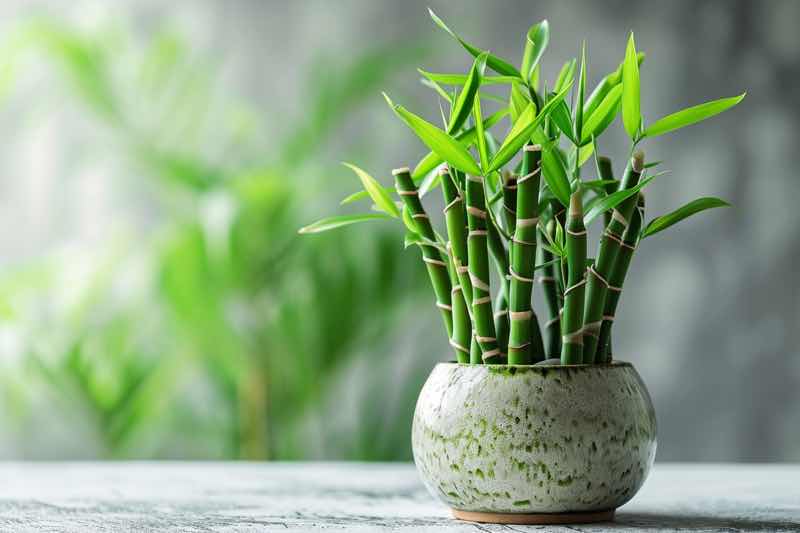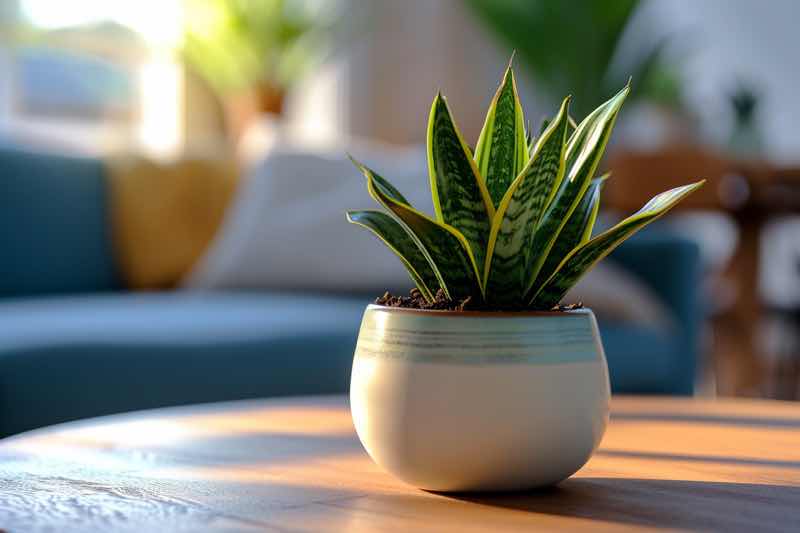Planting Feng Shui Plants to Increase Positive Energy at Home

Planting Feng Shui plants at home can increase positive energy and create a harmonious environment.
Key Takeaways:
- Introduction: What are feng shui plants and why are they important.
- Benefits: How feng shui plants can promote well-being and positive energy.
- Types of Plants: List of popular feng shui plants and their properties.
- Selection and Care Tips: How to choose and care for feng shui plants.
- Ideal Placement: Plant placement strategies to optimize feng shui.
Introduction to Feng Shui Plants
Feng Shui, the ancient Chinese art of harmonizing individuals with their surroundings, often involves the use of plants to attract positive energy and balance. Feng Shui plants are not just decorations, but they are considered vital elements that can affect the flow of energy, or Chi, in a room.
Benefits of Feng Shui Plants
Feng Shui plants are known to improve air quality, reduce stress, and create a sense of calmness. In addition, according to Feng Shui principles, specific plants can bring good luck, health, and prosperity.

Popular Feng Shui Plant Types
- Bamboo of Happiness: A symbol of good luck and prosperity.
- Aloe: It is known for filtering air and is easy to maintain.
- Yellow Palm: Adding a healthy wood element, it depicts growth and new life.
- Pachira Aquatica: Known as the "money tree," it symbolizes financial luck.
How to Care
- Bamboo of Happiness: Keep the water clean and avoid direct sun exposure.
- Aloe: Water when the soil feels dry, avoiding excess moisture.
- Yellow Palm: It needs sufficient moisture and regular watering.
Strategic Placement
- Bamboo of Happiness: Ideally placed in the wealth zone (southeast corner) or family zone (east).
- Aloe: Either for the health zone (east) or the knowledge zone (northeast).
- Yellow Palm: Suitable for the family zone (east) or lucky zone (southeast corner).

Selection and Maintenance Tips
Selecting plants feng shui The right plant depends on the area of your home and the feng shui element you want to strengthen. Make sure to choose plants that suit the lighting conditions and environment of the home. Regular plant maintenance is also important to maintain their positive energy.
Other Factors for Feng Shui Plants

Avoiding Feng Shui-Inappropriate Plants
Some plants are considered less than ideal in feng shui due to certain shapes or characteristics. For example, plants with thorns or sharp leaves such as cacti are often avoided as they are believed to carry energy'Sha Chi' or negative energy. The selection of plants should be in harmony with the principle of bringing in gentle, flowing energy.
The Importance of Plant Health and Vitality
In feng shui, plant health is very important. Withered or dead plants can be considered a symbol of stagnant or negative energy. Therefore, it is important to keep your plants healthy and fresh. This includes pruning wilted leaves, watering regularly, and ensuring enough light and nutrients.
Harmony of Elements in Feng Shui
In feng shui, it is important to create a balance between the five elements: wood, fire, earth, metal and water. Plants represent the wood element, which is associated with growth and vitality. Balancing plants (wood) with other elements such as water (aquarium or small fountain) or metal (metal pots or ornaments) can improve harmony and energy flow in your home.
Plants for Specific Rooms
- Kitchen: Small plants like aromatic herbs can boost energy in the kitchen.
- Living Room: Large plants that add oxygen and life to the space can be ideal here.
- Bedroom: Choose plants that have a calmer energy and don't require much light. Don't have too many plants in the bedroom to not disturb your sleep.
Ideal Placement
- Wealth Zone: The southeast corner of your home is the ideal place for wealth-related feng shui plants.
- Health Zone: The eastern area, which is associated with health, is a good place for plants like happiness bamboo.
- Study or Work Zone: Place plants like tongue-in-law in these areas to improve concentration.
Conclusion
Planting Feng Shui plants at home can increase positive energy and create balance in space. By choosing plants that comply with the principles of Feng Shui, you can create a harmonious and pleasant atmosphere in your home. So, don't hesitate to plant plants Feng Shui and feel the difference!
FAQs
Can all plants be used in feng shui?
No, only certain plants are considered to bring positive energy in feng shui.
What if I don't have enough sunlight in my house for certain plants?
Choose plants that are suitable for your home's lighting conditions, such as tongue-in-law which can withstand low light.
Is the care of feng shui plants different from ordinary plants?
In general, the maintenance is the same, but it is important to keep the plants healthy as the condition of the plants is believed to affect the energy they emit.
Are all feng shui plants suitable to be placed in the house?
Not all feng shui plants are suitable to be placed in the house. Some plants have aggressive properties or can cause allergies, so they need to be chosen carefully according to the conditions of the house and the preferences of the occupants.

